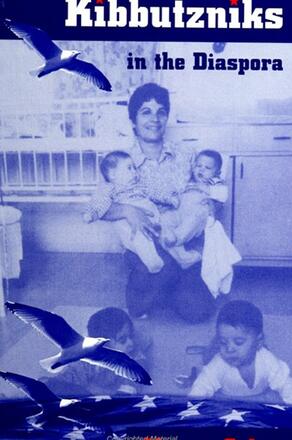
Kibbutzniks in the Diaspora
Alternative formats available from:
Explores the search for identity under changing conditions by examining the lives of kibbutz-born young people living in L.A.
Description
Under what circumstances would kibbutz-born young people leave a society which symbolizes, more than anything else, the Zionist dream? Naama Sabar explores this question by examining the lives of a group of Israeli emigrants living in Los Angeles in the 1980s and early 1990s. Through extensive interviews in which these "kibbutzniks" share their life stories, she uncovers what pushed them to leave the kibbutz and what pulls them to remain in L.A. The underlying leitmotif is the search for identity under changing conditions.
Naama Sabar is Associate Professor of Education at Tel Aviv University and the author of several books, including Kibbutz L.A. and Qualitative Research Methods in Teaching and Learning.
Reviews
"This book is a major contribution to understanding the kibbutz education system and the evolution and development of Israel and its society." — Jewish Book World
"This is a major contribution to our understanding of kibbutz education and its impact on the 'second generation' of the kibbutz. Because the book considers socialization, parenting, peer group interaction, and social structure, it examines education in both the broad sense of socialization and the narrow sense of the kibbutz educational system of the last generation." — James Armstrong, coeditor of Distant Mirrors: America as a Foreign Culture
"Sabar provides a thoughtful, sympathetic, and in-depth analysis of kibbutzniks as they reflect on their lives and why they have chosen to come to Los Angeles. The life stories give a human face to the experience of migration which contrasts greatly with popular stereotypes. In addition, because the book is written from the perspective of the country of origin, we understand an entirely different dimension of the migrant experience than we normally hear about; we become aware of the sense of ambivalence and loss associated with leaving one's home." — Steven J. Gold, author of From the Worker's State to the Golden State: Jews from the Former Soviet Union in California